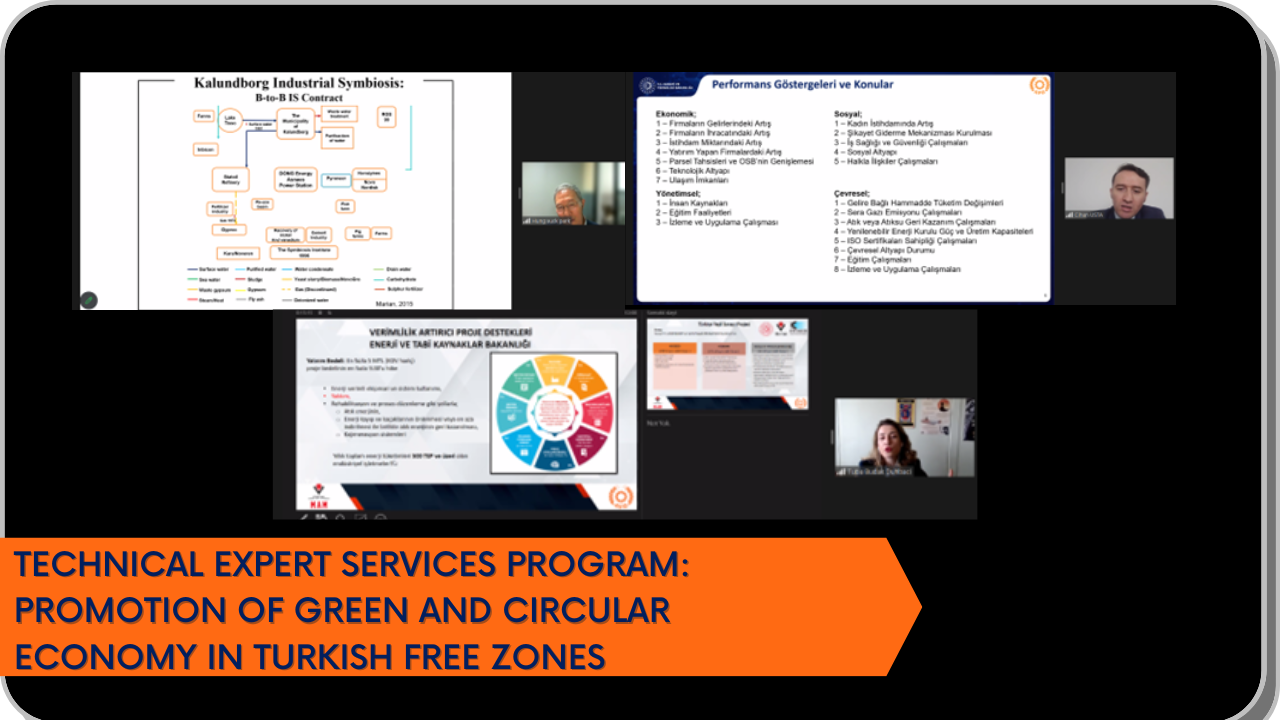
Select Page

Turkish free zones have contributed significantly to sustainable development by facilitating export-oriented investment and production, enhancing FDI and technology transfers, and promoting international trade. The 18 free zones across Turkiye currently host more than 1,900 companies that collectively earn almost USD25 billion annually and employ over 85,000 individuals.
An online individual-country Technical Expert Services (TES) project on the Promotion of the Green and Circular Economy in Turkish Free Zones was implemented through a collaborative initiative of the Turkish Ministry of Trade, NPO Turkiye, and APO Secretariat, 16–18 May. One hundred participants comprising representatives from the Turkish Ministry of Trade, Directorate General of Free Zones, Free Zones Directorates, various companies, and company associations attended the sessions conducted by an APO resource person from the ROK and two local resource persons appointed by the NPO Turkiye. Comprehensive presentations and discussion sessions introduced participants to ecoindustrial parks in the ROK, methods to develop robust Green Productivity (GP) and circular economy strategies, and policies tailored to their individual contexts.
Aligned with APO members’ sustainable trade and climate change mitigation agendas, the project emphasized the significance of promoting GP policies in free zones by providing more environmentally friendly, economically efficient structures, thereby reducing the ecological footprint of their activities and giving enterprises a competitive advantage through decreased production costs. The transformative shift toward green and circular economy principles is expected to yield positive outcomes across social, environmental, and economic sectors by fostering stronger collaborations among stakeholders and strengthening national and regional policies to tackle GP issues.